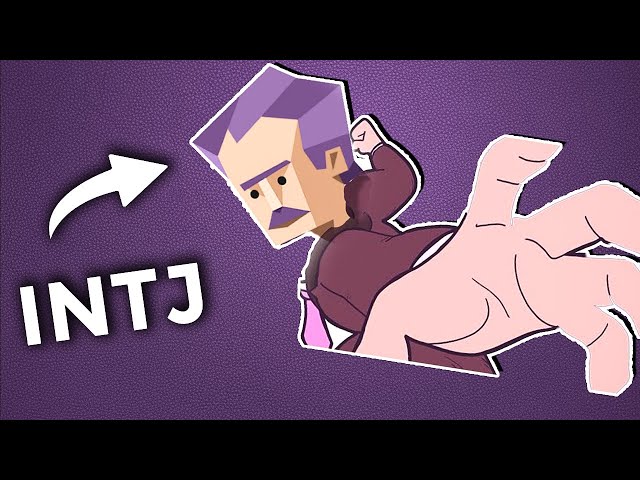When People Meet an INTJ: What Happens When They Snap INTJs are typically in control, but when they truly lose it, things change rapidly. Here are five things that happen when an INTJ snaps.
1. They Go Completely Silent
When an INTJ reaches their breaking point, the first and most noticeable reaction is silence. Unlike other personality types who might explode in anger or confront the situation immediately, INTJs withdraw inward, processing their emotions in a detached and logical way. This isn’t the “silent treatment” used as a passive-aggressive tactic; it’s an active disengagement a deliberate choice to stop wasting energy on a situation no longer worth their time.
This silence is a warning sign. INTJs aren’t ignoring the problem; they are analyzing, calculating, and deciding what to do next. They mentally review every interaction, mistake, and possible outcome. In this phase, they seek a permanent solution, not an emotional resolution. If an INTJ suddenly stops responding, it’s not because they don’t care, but because they are determining whether the person or situation still deserves space in their life.
People often misinterpret this silence as coldness or emotional detachment, but it’s the most intense reaction an INTJ can have. Provoking them or demanding an immediate response only reinforces their decision to remain silent. INTJs refuse to engage in emotional outbursts, viewing them as inefficient and irrational. They act on strategy, not impulse.
When they break their silence, their words are sharp, brutally honest, and surgically precise. They avoid unnecessary explanations or emotional appeals. If they’ve decided someone is no longer worth their energy, their response might be the last thing that person hears from them. This silent phase is the calm before the storm a warning that once an INTJ has made their decision, there’s no going back.
2. Their Words Become Brutally Honest
When an INTJ finally speaks after reaching their breaking point, their words are brutally honest sharp, direct, and unfiltered. They don’t sugarcoat, soften, or waste time on pleasantries. Every word is calculated, cutting to the core of the issue with surgical precision. There’s no emotional padding or concern for how their words are received just raw, unvarnished truth.
This shift isn’t about cruelty; it’s about efficiency. INTJs see no reason to dress up their thoughts in diplomacy when the situation has reached a breaking point. With their patience gone, they are no longer interested in managing others’ feelings. They become cold, detached, and devastatingly precise, cutting through excuses, manipulation, or incompetence without hesitation.
People on the receiving end often feel blindsided because INTJs typically keep their thoughts private. When they speak their mind, it can feel like a verbal execution—quick, ruthless, and final. They don’t yell or lose control; their words land with calm authority, signaling they’ve already analyzed, decided, and moved on. If an INTJ reaches this stage, the situation is beyond repair. They aren’t speaking to argue or convince they are delivering a conclusion. Once they’ve said what they needed to, they walk away, unmoved, and uninterested in further discussion.
3. They Execute Their Revenge… Intelligently
When an INTJ decides to take revenge, it’s never impulsive, messy, or obvious—it’s strategic, calculated, and designed for maximum impact. They don’t lash out in anger or seek short-term satisfaction. Instead, they observe, plan, and wait for the perfect moment to act. Their revenge isn’t petty retaliation; it’s about justice, efficiency, and ensuring the lesson is permanent.
Unlike those who explode in the heat of the moment, INTJs take their time, ensuring every move is measured and precise. They gather information, analyze weaknesses, and craft an unavoidable, undeniable response. The person on the receiving end often doesn’t realize what’s happening until it’s too late by the time they feel the consequences, the INTJ is already ten steps ahead, watching it unfold as planned.
INTJs rarely get caught. They don’t act recklessly or leave loose ends. Their revenge is so subtle and well-executed that it often appears as karma or coincidence rather than a direct attack. Whether it’s dismantling someone’s credibility, exposing hidden truths, or positioning themselves to leave the other person powerless, INTJs ensure their response is undeniable and irreversible.
INTJs don’t seek revenge over trivial matters. They act only when they believe it’s justified when someone has betrayed them, insulted their intelligence, or tried to manipulate them. In those cases, they won’t just walk away; they ensure the other person understands why they should never cross an INTJ again. Once their plan is set in motion, they don’t gloat or seek validation the results speak for themselves.
4. They Self-Isolate to Regain Control
After an INTJ snaps, their instinct is to self-isolate. This isn’t punishment or pouting it’s a strategic retreat. They withdraw from the situation, people, and chaos to regain control over their emotions and thoughts. The outside world becomes an overwhelming distraction, and they need solitude to restore balance and clarity.
In isolation, INTJs don’t wallow in anger or resentment; they process. They dissect the situation with a cold, logical approach, analyzing what went wrong, what they could have done differently, and how to prevent it from happening again. This reflection is essential for recentering themselves and ensuring their actions are driven by reason, not emotion.
INTJs thrive in solitude and aren’t afraid of being alone. In these moments, they find their greatest sense of control and clarity. They use this time to recharge, sort through thoughts, and plan their next steps whether recalibrating goals, strategizing new approaches, or restoring mental order. This self-isolation is critical for their mental well-being.
During this time, they don’t seek sympathy or comfort. They’ve moved past the drama and are focused on problem-solving. If someone reaches out, INTJs might seem distant or unresponsive because they’ve mentally checked out, processing privately. Once they regain control, they re-enter the world with renewed purpose and a calm, calculated approach. This isolation isn’t weakness it’s a form of self-preservation and empowerment, ensuring their next move is as strategic as the last.
5. They Burn Bridges Without Looking Back
When an INTJ decides someone or something is no longer worth their time, they don’t hesitate they burn bridges. Once that bridge is gone, they walk away with no second thoughts, regrets, or intention of looking back. This isn’t a rash, emotional reaction it’s a calculated decision to eliminate something or someone that no longer fits into their long-term vision.
When cutting ties, INTJs leave no ambiguity. They don’t entertain half-hearted reconciliation attempts. They make their position clear and move on no drama, no lingering feelings. Once a decision is made, it’s final, and they trust their judgment enough to know there’s no going back. If they see no further value in a person or situation, they don’t waste time on delays or complications.
For those left behind, this can feel cold and final. INTJs don’t often provide closure or explain their actions. They’re uninterested in sparing feelings or justifying their choices, having already mentally moved on. They see no point in rehashing the past. Burning bridges is a form of self-protection and efficiency why keep something that disrupts their peace or goals?
INTJs never look back. Once they sever ties, the people they’ve cut off are part of a past they’ve outgrown. There’s no regret or self-doubt because their decision was made with reason and purpose.







Leave a Comment